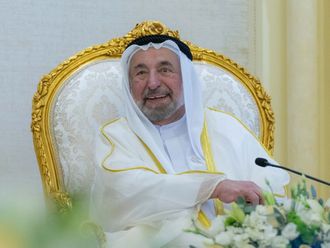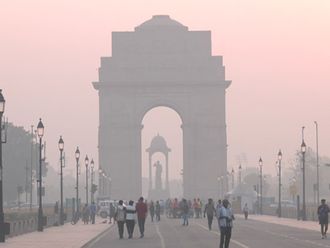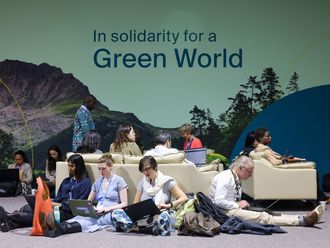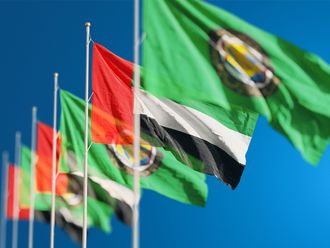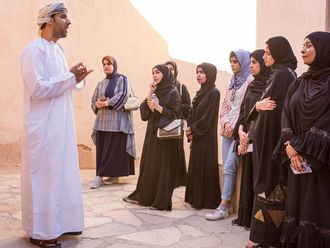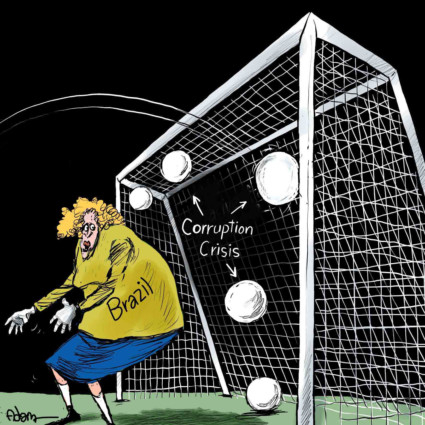
The ‘Irish Times’ writes in its editorial: “In the 1990s, we said never again,” a UN official recalls. Aleppo is the new Srebrenica. After four years of bombardment by government forces, the siege is complete. There is no way out any more nor a way in for food and humanitarian supplies. The final throttling of Syria’s second city by the government of Bashar Al Assad, assisted by Russian air power, threatens the lives of an estimated 300,000 desperate inhabitants living in the rubble of the rebel-controlled eastern part of the city. Hunger and indiscriminate bombing are taking a daily toll — the Red Cross describes the situation as “devastating and overwhelming”. To call Aleppo a new Srebrenica is, if anything, an understatement. But such a call to the conscience of the world is right.
The ‘Irish Times’ points out that the fear is that we are approaching an Aleppo endgame, the recapture of a city divided since 2012 which has represented the heart of the opposition to Al Assad. “Its capture would mark not only a potential humanitarian catastrophe and military victory for Al Assad, but a critical shift in the political balance of forces, cementing his control over the nation’s urban centres. A political shift that will change the dynamic of any potential talks about a post-Al Assad Syria.”
“Our security and the security of the Syrian people, our fate and theirs, are indissolubly linked. Like it or not. European states must urgently redouble pressure — political and economic if necessary — on Russia to break decisively with the Al Assad regime whose survival depends almost entirely on its old ally. Our memory of Srebrenica demands it.”
The ‘Guardian’ says Aleppo is in the midst of what could be the most decisive battle in the Syrian civil war. If its rebel-held eastern areas fall to the regime, the anti-Al Assad opposition will lose its last strategic urban stronghold — and the diplomatic equation in the Middle East will likely shift entirely in favour of Russia and its allies. “For the 300,000-strong population under siege, however, the immediate reality is not so much a geopolitical development as a humanitarian disaster of untold proportions.”
“It says a lot that in recent days children have been filmed burning tyres in the streets to create a kind of homemade no-fly zone: a thick black smokescreen meant to impair visibility for bombing crews. People suffocate from the smoke, but hope that they are slightly less likely to be hit by the relentless airstrikes. There are also reports of inhabitants, including children, having been gassed by chlorine released by shells in rebel-held territory not far from Aleppo — a choice of target that points the finger at Syrian government forces.” The Guardian writes that Russia’s open military intervention has in effect upended the diplomatic track.
“Western policies have failed in Syria, not least because they counted on hopes that Russia would become cooperative rather than aim for the full-blown military victory of its ally [Al} Assad. The fate of Aleppo’s population hangs in the balance. So does the credibility of western strategies, which have focused solely on Daesh and done too little to find a way to negotiate an end to the civil war, the worst human rights catastrophe of our time.”
The ‘Washington Post’ writes that for more than a month, US Secretary of State John F. Kerry has been pressing the regime of Vladimir Putin to accept what, for Moscow, would be a sweetheart deal on Syria. The United States would grant Russia’s long-standing request to carry out joint operations against Syrian rebels deemed to be terrorists, in exchange for another Kremlin promise to restrain bombing by the regime of Bashar Al Assad in some parts of the country. This cave-in to Putin would be so sweeping that some senior Obama administration officials have not concealed their doubts.
“Sure enough, it turns out that Putin had other ambitions. Rather than settle for the partial victory offered by Kerry, Russia has joined with the [Al] Assad regime in a new campaign to drive all anti-regime forces out of Aleppo, the country’s largest city — a feat that would essentially win the war.”
Bert Koenders, Minister of Foreign Affairs of the Netherlands, which is a member of the International Syria Support Group, writes in the ‘Independent’ that after five years of conflict, it is hard to imagine that the war in Syria can get any worse. “But it can get worse, much worse.” Three hundred thousand people are now effectively besieged in Aleppo.
“A minimal commitment to human rights is absent in Syria as demonstrated by the despicable attack on a maternity ward last Friday. The UN has rightfully described the current situation as both ‘medieval and shameful’. Not unlike Rwanda or Srebrenica, there is a real risk that the name ‘Aleppo’ will become synonymous with the world’s failure to act.”
“To Al Assad, Daesh and Jabhat Al Nusra are strategic assets. These terrorist groups allow Al Assad to portray himself as the lesser of two evils, urging the world to back him in the fight against terrorism. Such a policy ignores the majority of Syrians, who do not want to be ruled by either [Al] Assad or extremist groups. It would also be dangerously short-sighted. As long as Al Assad’s brutality is allowed to continue, civilians will suffer; instability will persist, and extremism will continue to flourish.”





